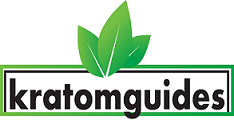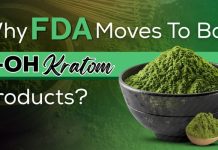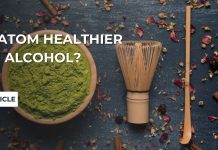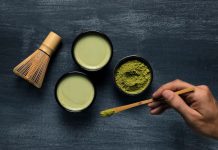Amidst the ambiguity of the safety of kratom, Food and Drug Association in the United States announced that the US Marshals seized more than 207,000 units of dietary supplements that contained or were kratom.
The seizure was not the first time, but it was a substantial amount to be confiscated as the seized products were worth more than $1.3million. The dietary supplements were manufactured by Atofil LLC in Fort Myers, Florida. This subsidiary of Premier Manufacturing Products provided merchandise to Boosted kratom, The Devil’s Kratom, Terra Kratom, Sembuh, Bio-Botanical, and El Diablo. The seized products included 34,000 kilograms of bulk kratom.
The FDA has not regulated the production of kratom products as it does not approve of the organic substance being safe for consumption. The American Kratom Association was formed to combat all challenges and doubts that were directed from the FDA towards Speciosa Mitragyna and consumption of dietary supplements containing this substance. However, since the health authorities are not convinced that kratom is helpful for humans, there has been a row between the manufacturers and the FDA since the introduction of this substance in the country.
The reason behind this seizure was that FDA does not recognize the health benefits of kratom. The two main alkaloids in kratom are Mitragynine and 7-hydroxy Mitragynine, and the latter is considered a psychoactive component that must not be consumed. Secondly, the opioid affinity of kratom makes it similar to high-degree drugs like morphine.
The FDA and kratom: repetitive warnings and action
The FDA has always been doubtful about kratom and its benefits to users. The authority has condemned the use of this substance for years as there is not enough scientific evidence to prove its benefits. The FDA is concerned that Speciosa Mitragyna has affected the same opioid receptors in the brain as morphine and may expose users to addiction, dependence, and abuse.
The FDA does not approve of kratom, and it has received numerous reports regarding the safety of this substance. While the authorities are reviewing the limited scientific data on Speciosa Mitragyna, it also warns users not to use any dietary supplement containing Mitragynine or 7-hydroxy Mitragynine, the two main alkaloids present in kratom.
The FDA also encourages more research so that the issue related to safety may be resolved and consumers can be better informed about the dangers of this substance. Due to this reason, the FDA instructs U.S Marshals to seize imports at the ports and entries to ensure that users are not exposed to any unsafe and hazardous substance.
The history of kratom in the USA
In 2012, the FDA received an import alert of detention without physical examination of unapproved drugs promoted in the United States. This alert denoted that kratom was imported into the country while it was unapproved and such drugs present serious safety and effectiveness concerns. The Import alert guided districts and various states to detain the imported consignments of kratom.
In 2014, another import alert was received regarding the import of kratom. This import alert was more specified as the dietary supplements contained kratom along with bulk Speciosa Mitragyna, which caused an alarming situation. FDA had to take strict measures to discourage the trade and use of this organic substance. As a result of this import alert, the authorities took steps to seize kratom.
In September 2014, the FDA requested U.S Marshals to seize more than 25,000 pounds of kratom from Rosefield Management in California. The raw kratom material was worth $5 million and was confiscated since there were safety reservations regarding the use of kratom.
In 2016, the FDA again requested U.S Marshal to confiscate 90,000 bottles of Speciosa Mitragyna products that were worth more than $0.4 million. The bottles were seized from Dordoniz Natural Products LLC in Illinois. These products were marketed under the name of RelakZpro.
In the same year, 2016, the FDA again requested the U.S Marshal to seize 100 cases of kratom products that were worth more than $150,000. These products were distributed by Nature Therapeutics LLC, known as Kratom Therapy and located in California.
The FDA also created an online portal for medical practitioners and workers to report any adversity resulting from kratom use. While the authorities claim to research the effects of Speciosa Mitragyna, it remains fixed that this substance is harmful due to its affinity to scheduled drugs. We may find millions of kratom users in the United States who claim that it is a revolutionary substance that refreshes and stimulates the senses. Still, the FDA does not approve of it as there is not enough scientific proof to back users’ claims.
In 2018, FDA Commissioner Scott Gottlieb issued a new warning to companies that market kratom. The commissioner warned companies that claim unproven medical benefits of kratom and sell ketum products as dietary supplements to impact health positively. The companies selling kratom issued disclaimers on their websites and product packaging that kratom does not substitute medicine. The company does not claim any medical benefits of the substance. The FDA website displays warning letters sent to two unscrupulous vendors who claimed that kratom has medical benefits for users. Chillin Mix Kratom and Mitra Distributing were warned as they claimed that kratom could relieve opium withdrawals. The FDA reminded these vendors that selling unauthorized substances was a violation of federal law.
In 2019, the FDA conducted laboratory analysis of 30 different kratom products from various vendors. The purpose of this analysis was to determine if they contained heavy metals. This analysis showed heavy amounts of nickel and lead, which exceeded the limits expressed as safe exposure for oral daily intake.
In 2019, the FDA again issued warnings to companies selling kratom for opioid cessation and pain treatment. Cali Botanicals in California and Kratom NC in North Carolina received warnings for false claims and boastful benefits that were not backed by research.
Unproven claims for kratom
The FDA clearly stated in the warnings that the unproven claims that were objectionable were:
• kratom acts as a mu-opioid receptor, like morphine.
• People use kratom to overcome substance addiction.
• Kratom is for pain management and recreational purposes.
• Kratom is for energy and may help anxiety, depression, insomnia.
• ADHD, ADD, and other conditions can be treated with kratom
These claims are common as manufacturers and distributors want to market their merchandise as a beneficial supplement. However, users still continue their support and consumption of kratom but the FDA is also determined that this substance has minimal benefits and is unsafe.
The FDA’s concern regarding salmonella
In 2018, the FDA advised users to avoid kratom products as there was a link between this substance and the multi-state outbreak of salmonella. The authorities sent out a mandatory recall order to seize kratom products and destruct them efficiently. In April 2018, various companies handed over their inventories and recalled the batches of products sold out to customers since 2017.
Many companies voluntarily recalled the specific batches sold during the period when the salmonella outbreak occurred. The FDA tested more than 35 products containing kratom and they all tested positive for salmonella. The public health concerns raised by this outbreak further alerted the FDA about the risks involved in kratom consumption.
Summary
The FDA seized kratom worth more than a million from a kratom manufacturer in May 2021. However, this is not the first time that a large seizure occurred, based on safety concerns. Kratom is available at hundreds of online shops in the United States but the FDA remains concerned about the false claims and the risks of this substance due to its affinity with opioids like morphine.
Since the introduction of kratom in the country, the FDA has emphasized the unapproved substance and the safety risks involved. There have been numerous confiscations and recalls of kratom due to various health concerns like salmonella.








